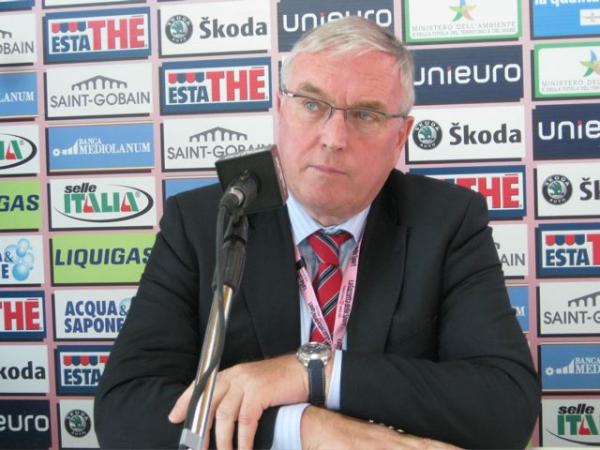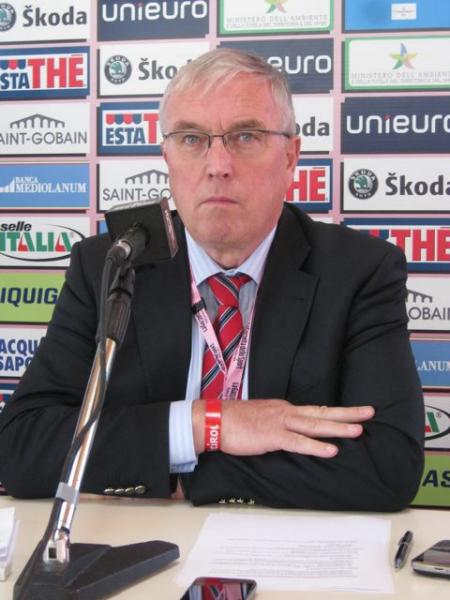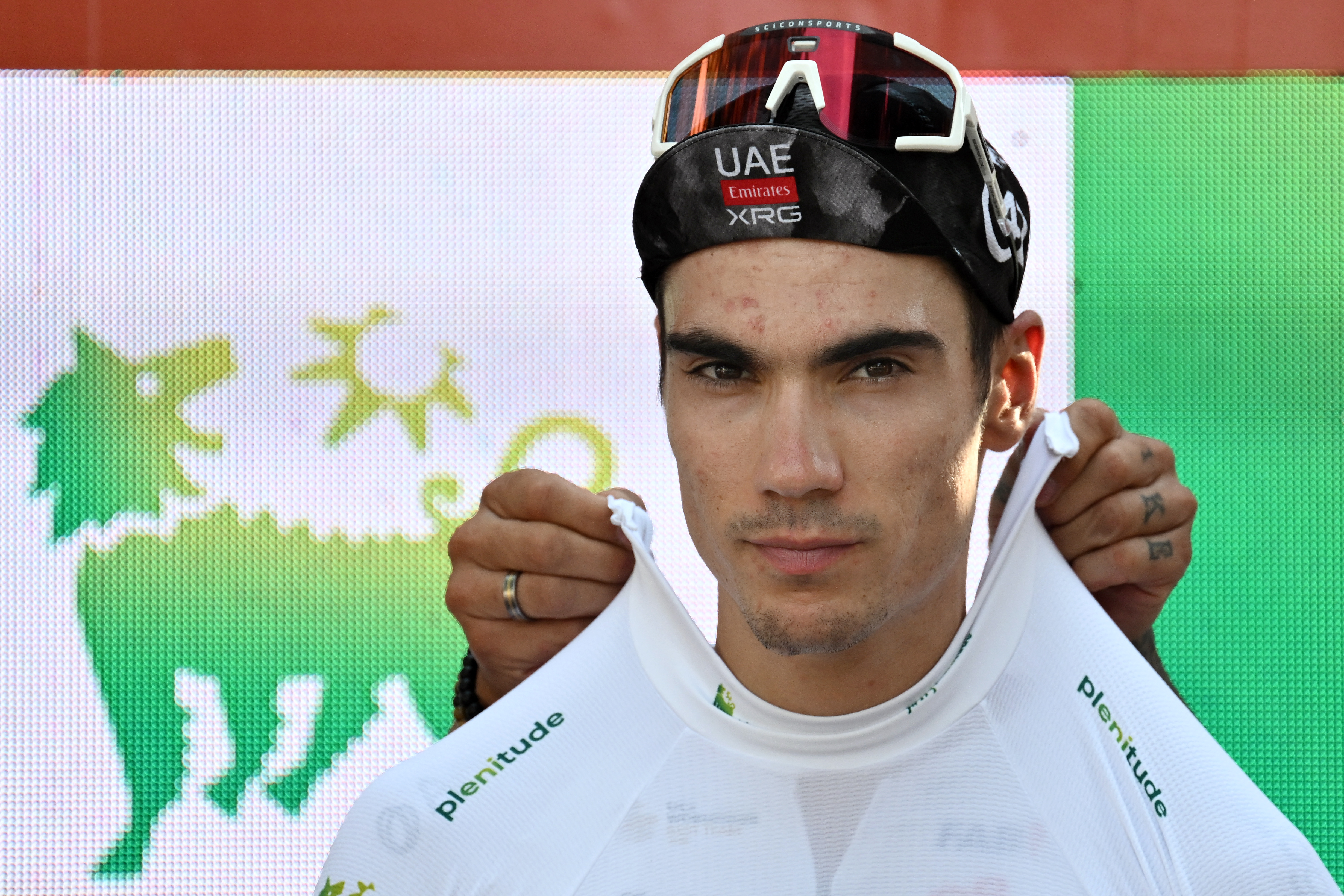McQuaid acknowledges accepting Armstrong donation a mistake
Claims letters show the UCI did not cover up a dope test


The President of the UCI Pat McQuaid has revealed that Lance Armstrong is the only rider ever to have made a donation to UCI and has admitted that in hindsight, the decision to accept $100,000 while the Texan was still racing was regrettable.
Speaking to the media for more than an hour at Plan des Corones before the finish of the Giro d'Italia time trial stage, McQuaid also revealed that he has asked the Canadian, Australian, Belgian and French national cycling federations to investigate the accusation made by Landis against Team Sky rider Michael Barry, Garmin-Transitions directeur sportif Matt White, RadioShack team manager Johan Bruyneel and BMC directeur sportif John Lelangue.
McQuaid later confirmed to Cyclingnews that Landis, Lance Armstrong and all the other US riders accused by Landis have been placed under investigation by USA Cycling via USADA.
McQuaid presented a paper trail of letters from the Paris and Lausanne anti-doping labs, WADA and the Tour de Suisse organisers that he claims showed that Armstrong did not test positive for EPO in 2001 and so could never have attempted to bribe the UCI.
"The UCI take seriously the accusation that the UCI took a bribe to hide the positive test of Lance Armstrong in 2001," McQuaid said.
"We've contacted in recent days the labs involved for testing for EPO at that time. I have statement here from those labs that support what I am about to say. The letters will also soon be published on the UCI website in a sign of transparency.
"First the letter from the Paris lab, that is under the AFLD. They had three positives for EPO in the UCI account between 2001 and 2003. Two in 2001 and one in 2003. All the reports were sent to the UCI in 2001 and 2002 and 2003 were also sent CPLD and also sent to the International Olympic Committee. In relation to Lausanne, there were 18 positive tests for EPO for the UCI controlled by this lab between 2001 and 2003: six in 2001, four in 2002 and eight in 2003. All analysis were sent to IOC and Swiss Olympic.
The latest race content, interviews, features, reviews and expert buying guides, direct to your inbox!
I also have a letter from WADA that states from January 2004, every positive result for UCI also went to the WADA. I also have a report from the Tour de Suisse from 2001 which states that there was no doping case in 2001."
"All this information supports what the UCI has always stated: That there is no way that the UCI or it's former president Hein Verbruggen could have accepted a bribe. It's just not possible."
The $100,000 question
McQuaid faced several follow questions about the ethics of accepting a $100,000 donation from Lance Armstrong.
He refused comparisons with a football team perhaps making a donation to a match referee but embarrassingly admitted that despite promising the $100,000 in April of 2002, Armstrong only paid up in 2005 after the UCI sent him a reminder of payment.
"To the best of my knowledge, the UCI has not accepted other donations and I'd just like to clarify that there was only one donation from Lance Armstrong not two or three," McQuaid said.
"You have to consider that at the time, in 2002, no accusations against Lance Armstrong had been made. They've all came up since then. We accepted the donation to help develop the sport. We didn't think there's a conflict of interest. It's easy to say in hindsight what could or would have been done. You have to put yourself in the situation at the time."
"I think based on experience, based on hindsight and 20/20 vision, and based on the claims of a conflict of interest, the UCI would be very careful before accepting a donation from a rider in the future. Having said that the UCI is not a rich organisation and we have many demands from around the world for demands for support and material. We will listen to anyone who can help us."
A clean Giro d'Italia this year?
McQuaid tried to find some good news and praised Ivan Basso and Cadel Evans for their spectacular racing in this year's Giro.
He said he was convinced that most of the riders are now competing cleanly but was forced to make a damn admission that it might not have been the case just three of four years ago.
"The UCI is very, very happy with how the Giro has gone this year," he said.
"My understanding from blood testing done prior to Giro is that the results and are becoming more and more normal. As I sit here today if the UCI was going to open a procedure on a rider I would be aware of it, but I'm not aware of that now. I was pleased to see that battle on the Zoncolan between Basso and Evans. They are superb riders who are 100% clean and give a great image for our sport."
"I have never denied since becoming president that there has been a culture of doping in this sport. But I've also stated that there are cheats in every aspect of life and society."
"Cycling had changed dramatically in the last three or four years and the UCI Biological Passport ensures that riders who take EPO won't get away with it any more."
"The UCI's Mario Zorzoli showed me a graph from 2008 to 2009 indicating that a broad numbers of riders have more normal (blood) values than in previous years. I cannot guarantee, nobody can guarantee, that this race in is 100% clean or guarantee that any sport is 100% clean."
"We can only do the best we can but if you look at riders winning, there are young riders like Peter Sagan and Richie Porte, the young riders are coming through with a new philosophy. Everybody recognizes that a change has happened."

Stephen is one of the most experienced members of the Cyclingnews team, having reported on professional cycling since 1994. Before becoming Editor-at-large, he was Head of News at Cyclingnews. He has previously worked for Shift Active Media, Reuters and Cycling Weekly. He is a member of the Board of the Association Internationale des Journalistes du Cyclisme (AIJC).
